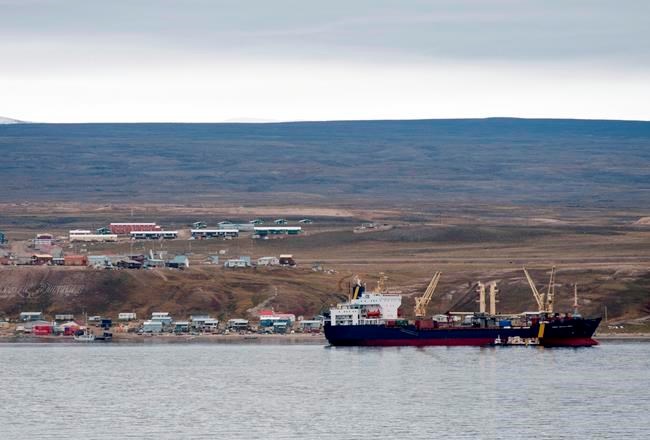IQALUIT, Nunavut — The summer sealift typically brings everything from housewares to heavy equipment to Pond Inlet in Nunavut.
But this year, on Aug. 28, the ship dropped off something the remote community of about 1,600 on the northern shore of Baffin Island has never had before — an ambulance.
The sealift brings what planes can't to the territory's fly-in-only communities, including bulk items, non-perishable goods and vehicles.
Each year, between June and October, ships take off from several ports in southern Canada to make the deliveries to Nunavummiut. But bringing anything to the North via Nunavut's ocean highway comes at a high cost.
David Stockley, Pond Inlet's chief administrative officer, says purchasing and shipping an ambulance would have cost the hamlet about $160,000. So when Peel Region Paramedic Services in Ontario offered to donate one, he jumped at the chance.
“It’s a service that’s long overdue for Pond Inlet. It’s a growing community and that service was definitely needed," Stockley said.
With some financial help from the territory, the hamlet paid the shipping fees to have the ambulance brought in by boat.
When it arrived, it was basically ready to be put into service, Stockley said.
"(Peel Paramedic Services) were good enough to actually fully set it up inside, all the different things, bandages and so on ... it was fully equipped."
Because the community has never had an ambulance, people needed to be trained to operate it.
Eight people recently completed a four-day course, which included first aid. Peel paramedics also shipped instruction manuals and a step-by-step video on how the ambulance works.
Pond Inlet, like many Nunavut communities, had previously relied on the RCMP to transport people to the local health centre.
"The RCMP basically just couldn’t keep up with doing that service along with their own work. The health centre didn’t have the equipment to actually do it themselves either," Stockley said.
Now, Pond Inlet residents who need emergency medical services call the health centre and staff there contact the fire department. Two of the responders pick up a patient and take him or her to the health centre or to the airport if an airlift to Ottawa is needed for more serious treatment.
Stockey said the ambulance is not being used as a taxi.
"The service is only used when they need it. It’s not a service just to pick people up to get to the health centre. It’s for emergencies."
Although emergency service workers in Pond Inlet, including firefighters, are volunteers, the ambulance responders get paid each time they go out on a call, Stockley said.
Brad Bowie, community relations officer with Peel Regional Paramedic Services, said its ambulances were typically sold to a wholesaler after five to seven years of use, or after being driven 250,000 kilometres.
"Last year, we found out about these communities that needed the ambulances, that could use them," Bowie said.
Since then, the service has donated ambulances to Kinngait, Clyde River, Igloolik, Taloyoak and Sanirajak. Bowie said it plans to donate more in the future.
In the summer, Bowie was part of a team of paramedics who drove four ambulances to Quebec so they could be picked up by the sealift and delivered to Nunavut. One of those ambulances went to Pond Inlet.
"That was probably one of the best experiences of my life," said Bowie.
"I’ve been a paramedic for 27 years. The morale boost that it gives our staff to know that the ambulances that are being donated are truly needed and being used ... means way more than a piece of metal."
This report by The Canadian Press was first published Oct. 12, 2020.
___
This story was produced with the financial assistance of the Facebook and Canadian Press News Fellowship.
Emma Tranter, The Canadian Press



